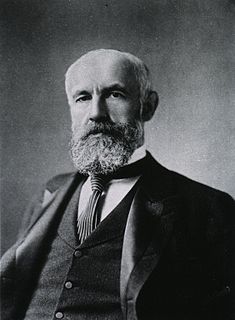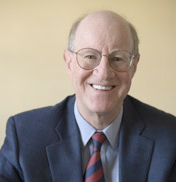Related Research Articles

Developmental psychology is the scientific study of how and why human beings change over the course of their life. Originally concerned with infants and children, the field has expanded to include adolescence, adult development, aging, and the entire lifespan. Developmental psychologists aim to explain how thinking, feeling, and behaviors change throughout life. This field examines change across three major dimensions: physical development, cognitive development, and social emotional development. Within these three dimensions are a broad range of topics including motor skills, executive functions, moral understanding, language acquisition, social change, personality, emotional development, self-concept, and identity formation.

Adolescence is a transitional stage of physical and psychological development that generally occurs during the period from puberty to legal adulthood. Adolescence is usually associated with the teenage years, but its physical, psychological or cultural expressions may begin earlier and end later. For example, puberty now typically begins during preadolescence, particularly in females. Physical growth and cognitive development can extend into the early twenties. Thus, age provides only a rough marker of adolescence, and scholars have found it difficult to agree upon a precise definition of adolescence.

Jean Piaget was a Swiss psychologist known for his work on child development. Piaget's theory of cognitive development and epistemological view are together called "genetic epistemology".
Biologically, an adult is an organism that has reached sexual maturity. In human context, the term adult additionally has meanings associated with social and legal concepts. In contrast to a "minor", a legal adult is a person who has attained the age of majority and is therefore regarded as independent, self-sufficient, and responsible. The typical age of attaining legal adulthood is 18, although definition may vary by legal rights and country.
Psychology of religion

Granville Stanley Hall was a pioneering American psychologist and educator. His interests focused on childhood development and evolutionary theory. Hall was the first president of the American Psychological Association and the first president of Clark University. A Review of General Psychology survey, published in 2002, ranked Hall as the 72nd most cited psychologist of the 20th century, in a tie with Lewis Terman.

The Tavistock and Portman NHS Foundation Trust is a specialist mental health trust based in north London. The Trust specialises in talking therapies. The education and training department caters for 2,000 students a year from the United Kingdom and abroad. The Trust is based at the Tavistock Centre in Swiss Cottage. The founding organisation was the Tavistock institute of medical psychology founded in 1920 by Dr. Hugh Crichton-Miller. It has long been regarded as a professional centre of excellence of international renown, in its application of psychoanalytic ideas to the study and treatment of mental health and interpersonal dynamics.

William Damon is a professor at Stanford University, director of the Stanford Center on Adolescence, and senior fellow at Stanford University's Hoover Institution. He is one of the world's leading researchers on the development of purpose in life and the author of the influential book The Path to Purpose. Damon also helped develop innovative educational methods such as peer collaboration, project-based learning, and the youth charter. Damon is also known for his studies of purposeful philanthropy. His current work includes a scientific study that explores the development of purpose in higher education and a study of family purpose across generations. Dr. Damon writes on intellectual and social development through the lifespan. He is the founding editor of New Directions for Child and Adolescent Development and editor-in-chief of The Handbook of Child Psychology. Damon has been elected to the National Academy of Education and the American Academy of Arts and Sciences. In January 2018, Damon was named one of "The 50 Most Influential Psychologists in the World".
Evolutionary developmental psychology (EDP) is a research paradigm that applies the basic principles of Darwinian evolution, particularly natural selection, to understand the development of human behavior and cognition. It involves the study of both the genetic and environmental mechanisms that underlie the development of social and cognitive competencies, as well as the epigenetic processes that adapt these competencies to local conditions.
Personality development is the relatively enduring pattern of the thoughts, feelings, and behaviors that distinguish individuals from one another. The dominant viewpoint in personality psychology indicates that personality emerges early and continues to develop across one's lifespan. Adult personality traits are believed to have a basis in infant temperament, meaning that individual differences in disposition and behavior appear early in life, potentially before language of conscious self-representation develop. The Five Factor Model of personality maps onto the dimensions of childhood temperament, suggesting that individual differences in levels of the corresponding personality traits are present from young ages.
Paul B. Baltes was a German psychologist whose broad scientific agenda was devoted to establishing and promoting the life-span orientation of human development. He was also a theorist in the field of the psychology of aging. He has been described by American Psychologist as one of the most influential developmental psychologists.

Anthony Stevens is a Jungian analyst, psychiatrist and prolific writer of books and articles on psychotherapy, evolutionary psychiatry and the scientific implications of Jung’s theory of archetypes. He is a graduate of Oxford University and in addition to a DM has two degrees in psychology. He is a member of the Royal College of Psychiatrists and a senior member of the Independent Group of Analytical Psychologists.
Emerging adulthood is a phase of the life span between the adolescence and also full-fledged adulthood which encompasses late adolescence and early adulthood, proposed by Jeffrey Arnett in a 2000 article in the American Psychologist. It primarily describes people living in developed countries, but it is also experienced by young people in urban wealthy families in the Global South. The term describes young adults who do not have children, do not live in their own home, or do not have sufficient income to become fully independent. Arnett suggests emerging adulthood is the distinct period between 18 and 25 years of age where adolescents become more independent and explore various life possibilities. Arnett argues that this developmental period can be isolated from adolescence and young adulthood. Emerging adulthood is a new demographic, is contentiously changing, and some believe that twenty-somethings have always struggled with "identity exploration, instability, self-focus, and feeling in-between". Arnett called this period "roleless role" because emerging adults do a wide variety of activities, but are not constrained by any sort of "role requirements". The developmental theory is highly controversial within the developmental field, and developmental psychologists argue over the legitimacy of Arnett's theories and methods.
Positive adult development is a subfield of developmental psychology that studies positive development during adulthood. It is one of four major forms of adult developmental study that can be identified, according to Michael Commons; the other three forms are directionless change, stasis, and decline. Commons divided positive adult developmental processes into at least six areas of study: hierarchical complexity, knowledge, experience, expertise, wisdom, and spirituality.
The Institute for International and Cross-Cultural Psychology (IICCP) at St. Francis College, New York City was founded in 1998. During its 21 years of existence it has become known for the advancement of cross-cultural psychology and international psychology. Supported by an International Advisory Board of psychologists from six countries, members of the institute have engaged in a series of research projects, edited books on a broad variety of topics in international psychology, sponsored numerous conferences, symposia and colloquia, given lectures at many conferences and institutions around the world, and introduced innovative curriculum development.
Lisa Jane Miller is a professor, researcher and clinical psychologist, best known as a research scholar on spirituality in psychology. Miller is author of the New York Times Bestseller, "The Spiritual Child," and has worked for two decades to integrate spirituality into mainstream research on mental health and wellness publishing over 100 peer reviewed article on spirituality and mental health in leading medical and psychology journals, including the American Journal of Psychiatry and Journal of the American Academy of Child and Adolescent Psychiatry. Her work focuses on the spiritual awareness of children, adolescents and parents, and benefits to mental health and wellness of spiritual awareness. She founded the Spirituality Mind Body Institute at Teachers College, Columbia University, the first Ivy League graduate program in spirituality and psychology. Dr. Miller is best known outside of academia as the author of the New York Times Best Seller The Spiritual Child: The New Science of Parenting for Health and Lifelong Thriving which also hit #1 Family Nielsen Ratings, Psychology Best Seller USA Today and Non-Fiction Best Seller Publishers Weekly. Miller works with the US Army, schools and universities, non-profit and commercial organizations to build spiritually supportive culture.
The theory of narrative identity postulates that individuals form an identity by integrating their life experiences into an internalized, evolving story of the self that provides the individual with a sense of unity and purpose in life. This life narrative integrates one's reconstructed past, perceived present, and imagined future. Furthermore, this narrative is a story – it has characters, episodes, imagery, a setting, plots, and themes and often follows the traditional model of a story, having a beginning, middle, and an end (denouement). Narrative identity is the focus of interdisciplinary research, with deep roots in psychology.
Dr. Darcia Narvaez is a Professor of Psychology at the University of Notre Dame who has written extensively on issues of character and moral development.

Paul T. P. Wong is a Canadian clinical psychologist and professor. His research career has gone through four stages, with significant contributions in each stage: learning theory, social cognition, existential psychology, and positive psychology. He is most known for his integrative work on death acceptance, meaning therapy, and second wave positive psychology. He has been elected as a fellow for both the American Psychological Association and the Canadian Psychological Association.
Moral identity is a concept within moral psychology referring to the importance of morality to a person’s identity, typically construed as either a trait-like individual difference, or set of chronically accessible schemas.
References
- ↑ Sternberg, Robert J. (2003). Wisdom, Intelligence, and Creativity Synthesized. New York: Cambridge University Press]
- ↑ Piaget, J. 1970 Intellectual evolution from adolescence to adulthood (Cambridge: Cambridge Univ. Press, 1977) [L'evolution intellectuelle entre l'adolescence et l'age adulte]
- ↑ Kohlberg, Lawrence; Charles Levine, Alexandra Hewer (1983). Moral stages : a current formulation and a response to critics. Basel, NY: Karger.
- ↑ Handbook of Psychotherapy, (Norcross&Goldried, 2005)
- ↑ Roehrig, L. (2010). "The ABC's of Adult Ed." Library Journal (1976), 135 (10), 48-51.
- ↑ Ken Wilber (1996) A Brief History of Everything, (Boston & London: Shambhala Publications, 2nd edition, 2000